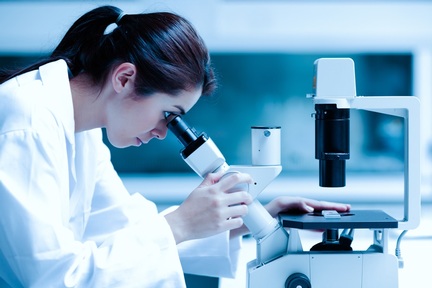New blood test promises early detection of cancer
A team of researchers have taken a major step towards one of the biggest goals in cancer research: a blood test that can detect tumours long before a person becomes aware of symptoms.

The 'liquid biopsy' test, called CancerSEEK, screens for eight forms of cancer and helps identify its location.
Scientists at Johns Hopkins University called it ‘extremely exciting’, suggesting the development could one day lead to a tool for routinely screening people.
Nickolas Papadopoulos, professor of oncology at Johns Hopkins University, said: "The use of a combination of selected biomarkers for early detection has the potential to change the way we screen for cancer, and it is based on the same rationale for using combinations of drugs to treat cancers."
Researchers at John Hopkins University in Maryland, America, tested CancerSEEK on 1,005 patients with cancers of the ovary, liver, stomach, pancreas, esophagus, colorectal, lung or breast.
In blood samples from the patients, the test correctly detected the disease 70 per cent of the time. Ovarian cancer was the easiest to detect, followed by liver, stomach, pancreas, esophageal, colorectal, lung and breast cancers.
Professor of oncology, Bert Vogelstein said that although the test does not spot every cancer, it identifies many that would likely otherwise go undetected.
He said: "Many of the most promising cancer treatments we have today only benefit a small minority of cancer patients, and we consider them major breakthroughs. If we are going to make progress in early cancer detection, we have to begin looking at it in a more realistic way, recognising that no test will detect all cancers.
"This test represents the next step in changing the focus of cancer research from late-stage disease to early disease, which I believe will be critical to reducing cancer deaths in the long term."
The findings have been published in the journal Science.
Latest News
 29-Jul-24
Dementia Bus gives carehome.co.uk staff insight into life with dementia
29-Jul-24
Dementia Bus gives carehome.co.uk staff insight into life with dementia
 01-Mar-24
Find out the top care homes in 2024
01-Mar-24
Find out the top care homes in 2024
 21-Mar-23
UK's top care homes in 2023 revealed
21-Mar-23
UK's top care homes in 2023 revealed
 03-Jan-23
carehome.co.uk launches free care helpline
03-Jan-23
carehome.co.uk launches free care helpline
 13-Dec-22
5 mins with Emily Whitehurst, chief operating officer for Constantia Healthcare
13-Dec-22
5 mins with Emily Whitehurst, chief operating officer for Constantia Healthcare